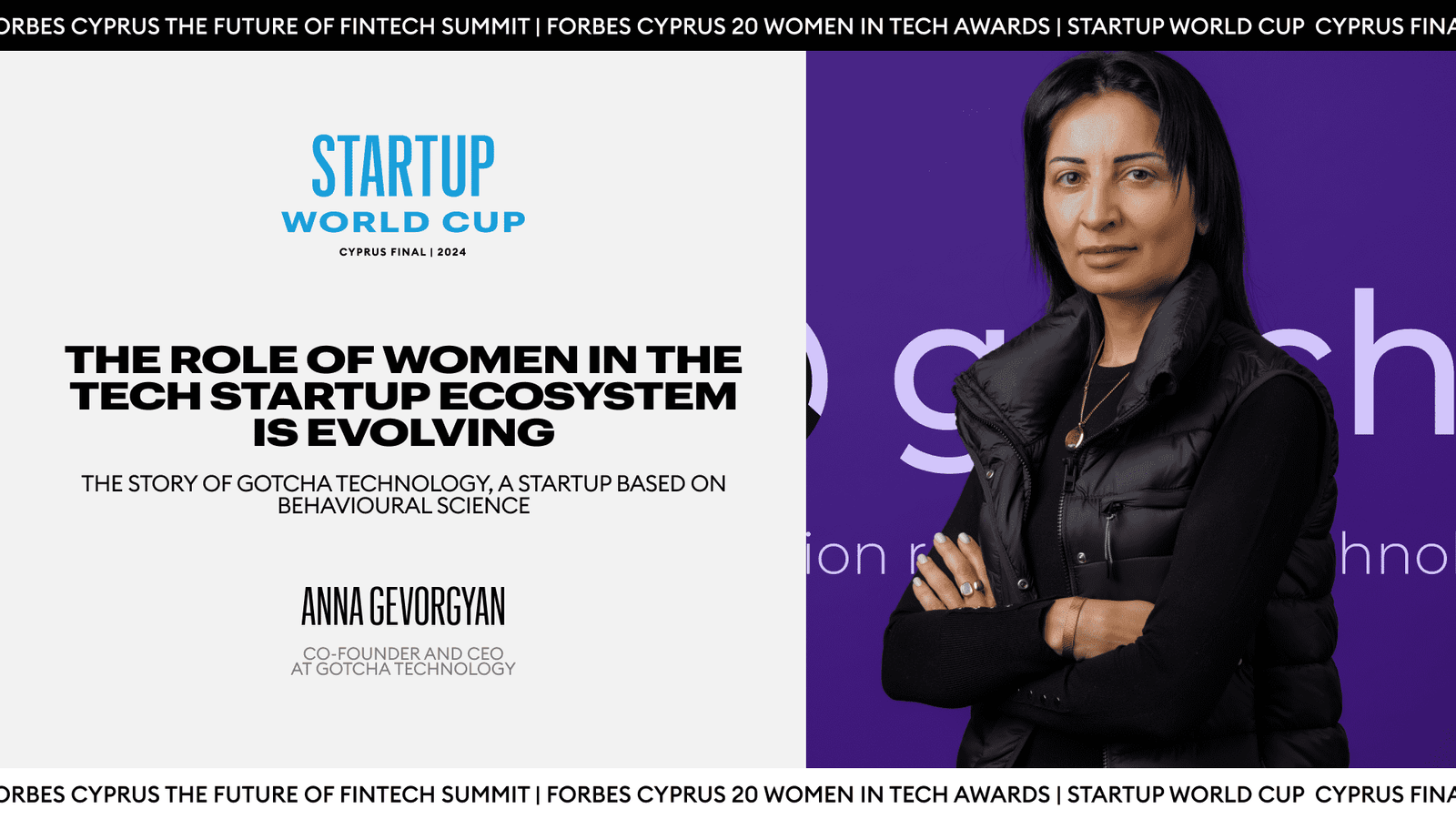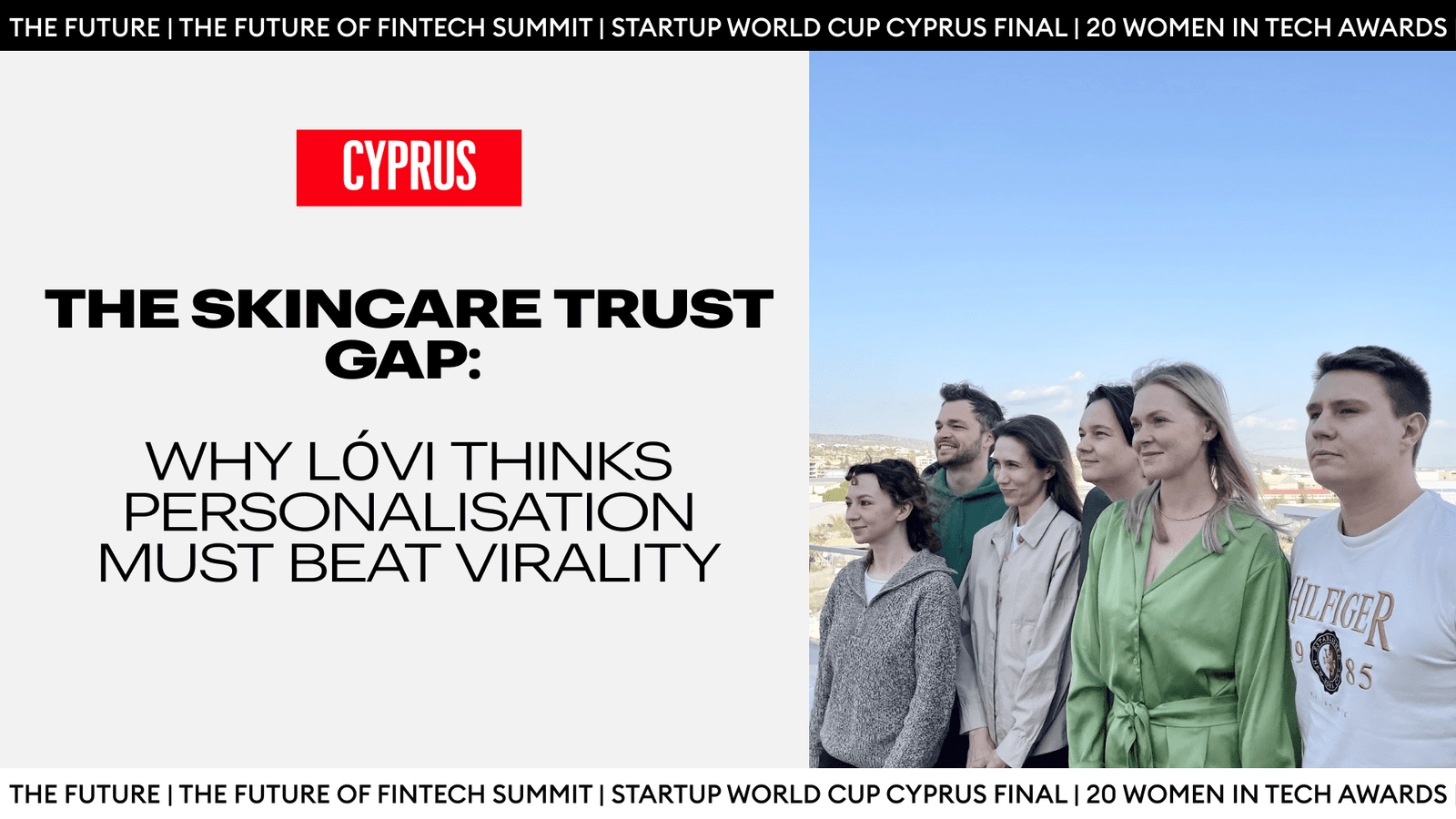“Feel the Future. Unlock Emotions. Enhance Connections” is the motto of Gotcha Technology, a computer-vision technology that detects micro-emotions through facial behaviour analysis, based on behavioural science.
With headquarters in Yerevan, Armenia, the startup wants to revolutionise behavioural science research, and angel investors are enthusiastic about it, while the company targets to transcend to Unicorn status.
Follow THE FUTURE on LinkedIn, Facebook, Instagram, X and Telegram
Anna Gevorgyan is one of the founders and Chief Executive Officer of Gotcha Technology, and talked to The Future about the inception of the company.
Here is the first part of the interview:
The beginning
Can you share a bit about your personal background and career journey leading up to the founding of Gotcha Technology?
With a foundational degree in engineering and an MBA, I launched my career at a Big4 firm, gaining extensive international experience across multiple countries, including the UK.
What inspired you to transition from working with the Big 4 accounting firms to becoming an entrepreneur?
Six years ago, a long-time friend, Hamo Vetunts, with whom we co-founded Gotcha, and I embarked on a business venture to develop a psychological chatbot for business professionals. My fascination with psychology led me to connect with a renowned expert in emotional intelligence, micro-expressions, and lie detection. Intrigued by this field, I pursued self-education, eventually passing all exams in FACS, micro-expression detection, and face profiling. This rigorous training earned me eight certifications from certified U.S. authorities, officially making me a certified face profiler.
We then decided to leverage this expertise to create a cutting-edge micro-emotion recognition technology, transforming theoretical knowledge into practical innovation.
I believe that if you follow your dream, and commit wholeheartedly to it, you can achieve everything with an amazing team
Women take the lead
As a female founder, what unique challenges and opportunities have you encountered in the tech industry?
Well, sometimes it seems that people take you seriously if you are a man, with a tech background and with a very serious expression on your face. But I’ve never felt the need to prove myself to anyone. I pursue my passions and endeavours with genuine love and dedication. I believe that if you follow your dream, and commit wholeheartedly to it, you can achieve everything with an amazing team. Life will take care of the rest.
How do you see the role of women evolving in the tech startup ecosystem?
The role of women in the tech startup ecosystem is evolving towards greater inclusivity and leadership. More women are founding startups, taking on executive roles, and influencing technological innovation. Efforts to close the gender gap through mentorship, funding, and supportive networks are empowering women to drive change and achieve significant milestones in the tech industry.
The solution of GOTCHA
Could you explain what GOTCHA Technology does and the primary problems it aims to solve?
GOTCHA is an AI technology that detects micro-emotions through the analysis of human facial behaviour. It is fully based on behavioural scientific research, a comprehensive, anatomically based system for describing all visually identifiable facial movements.
We developed different models based on various value props and designed them for different business use cases. Here I’ll describe 2 of them:
- Evaluative Model: With this model, we are solving a very real problem for the CX and sales teams. Companies with existing traditional methods (such as mysterious shoppers / anonymous customers) have limited & biased data on customer satisfaction. Now with Gotcha, they have a reliable tool that has unbiased and unlimited data on customer satisfaction assessment. So, the Gotcha Evaluative model allows to assess the customer satisfaction level with 90-95% accuracy
- Investigatory Model: With this model, we are solving some non-explicit problems in lawsuit management or fraud detection. In these use cases, they have Low-accuracy data and humiliating social impact with existing (polygraph) methods Gotcha Investigatory model assists in detecting fraud (at the enterprise level) and crimes (in the lawsuit management and legal services) by unmasking possible deception cases with 10% higher accuracy than by the existing tools. In this model, Gotcha detects 13 emotions (in addition to basic ones, we are recognizing several advanced and complicated emotions), based on facial behaviour, gestures, and speech recognition.
The tech behind it
What inspired the focus on micro-emotions rather than macro-emotions?
Reading and understanding micro-emotions is one of the most reliable methods for detecting subconscious or true emotions because the facial micro-expressions:
- result in involuntary emotional leakage, exposing a person’s true emotions
- occur very quickly, in 1/25th of a second
- cannot be prevented from occurring.
And finally, it is proven that human facial behaviour is universal and doesn’t depend on racial, age or gender differences.
How does Gotcha Technology utilize AI to detect emotions, and what are the underlying technologies involved? Are there any proprietary technologies or innovations? And what differentiates you from other competitors?
We integrate AI into our technology through various applications, including speech recognition and facial detection technologies.
Our uniqueness lies in our proprietary facial landmark system, developed using complex algorithms and calculations. This system accounts for head and eye movements, intensities, and other factors, resulting in highly accurate detection and recognition of subtle, fleeting emotions.
So, in addition to the above-described Gotcha has the following uniqueness, which sets as apart from the others:
Multimodal Emotion Decoding: Gotcha goes beyond mere facial expressions, incorporating a multimodal approach encompassing gestures and speech recognition. This nuanced understanding allows for a more comprehensive and accurate interpretation of emotions, capturing the subtleties that make human expressions rich and diverse.
Real-Time Processing:
- Embracing the Moment: One of the key differentiators of our technology is its ability to operate in real time, providing instantaneous insights into the emotional states of individuals
- Privacy and Storage: The live version of the Gotcha model allows users to analyse human emotions online and generate immediate reports without the requirement of storing anyone’s biometric data (video recordings). So, we solved very important issues related to privacy and storage.
High Accuracy: Industries such as customer service can leverage high accuracy in emotion recognition to detect early signs of emotional distress, facilitating timely interventions and personalized care. In security and surveillance, accurate emotion recognition adds an extra layer of threat detection by identifying suspicious behaviour or potential risks.
How do you address concerns regarding privacy and the ethical use of emotion detection technology, and what about compliance with regulations such as GDPR?
So, as I mentioned above, we solved the privacy and GDPR issues with our real-time model. Our real-time model ensures privacy while delivering instant results, with no biometric data retention. So, without keeping anyone’s video or photo records.
The second part of the interview will be published in the following days.














